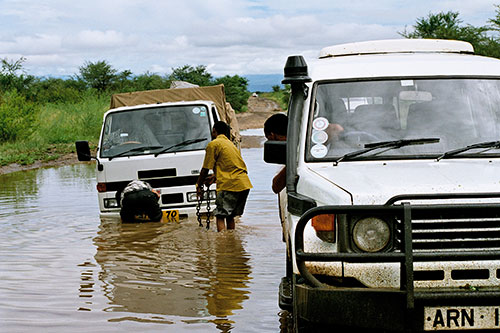The Hydrology Research Group at the University of Bristol, in conjunction with their commercial flood analytics spin-out SSBN Ltd, has developed a global flood hazard model that operates with a minimum resolution of 90m.
The model is designed to be robust to the limited quality of global datasets, while being able to assimilate more detailed local data where available.
The model, described and validated in a recent paper in Water Resources Research, shows good agreement with trusted benchmark government flood hazard datasets from the UK and Canada.
Lead author of the paper Chris Sampson from Bristol’s School of Geographical Sciences said: “Floods are a natural hazard that affect communities worldwide, but to date the vast majority of flood hazard research and mapping has been undertaken by wealthy developed nations.
“As populations and economies have grown across the developing world, so too has demand from governments, businesses, and NGOs for information about flood hazard in their territories. Because many such territories do not have the data, budget or expertise to create their own bespoke flood models, a global solution such as our flood model is required.”
The availability of detailed and skilful flood hazard data in previously un-modelled territories is of such importance that output from the model is already being used by a range of partners, including the World Bank, Google and global insurance companies, to assist with decision making and crisis response in areas where flooding poses a critical threat to life or property.
Paper
‘A high-resolution global flood hazard model’ by Christopher C. Sampson, Andrew M. Smith, Paul B. Bates, Jeffrey C. Neal, Lorenzo Alfieri and Jim E. Freer in Water Resources Research [Open Access]
